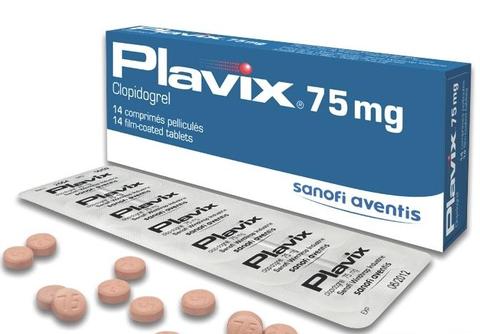The interaction between PPI (omeprazole) and clopidogrel, what is your recommendations?
Introduction
PRODIGY has published a guideline on antiplatelet treatment. This contains a scenario on the management of gastrointestinal adverse effects. This scenario discusses how to manage a patient at high risk of gastrointestinal bleeds. Ensure that general measures to reduce risk of gastrointestinal (GI) adverse effects have been taken...
Clinical practice
Prescribing proton pump inhibitors (PPI)
If taking low-dose aspirin, co-prescribe a proton pump inhibitor (such as lansoprazole or omeprazole) for gastroprotection, instead of switching to clopidogrel (Plavix). If taking clopidogrel alone or in combination with low-dose aspirin, co-prescribe lansoprazole 15 mg daily (increasing to 30 mg only if 15 mg is insufficient).
- Co-prescribing of omeprazole (Losec) or esomeprazole (Nexium) with clopidogrel should be avoided.
- If the physician prescribed omeprazole or esomeprazole, you should recommed separating their administration which could decrease or eliminate the risk of competitive inhibition because the half-lives of clopidogrel and omeprazole are short.
👉 Omeprazole could be given in the morning before breakfast and the clopidogrel could be given at night or clopidogrel could be given at lunchtime and omeprazole before dinner. Although FDA does not believe this strategy will reduce this interaction!.
Alternatively, consider prescribing double-dose H2-receptor antagonist (but not cimetidine) instead of a PPI — for example, ranitidine 300 mg twice daily (off-label dose). Consider testing for and treating Helicobacter pylori if the person has a history of ulcer disease or upper GI bleeding, unless previously tested and treated for this.
Prescribing H2 blockers (H2RA)
The basis for the recommendation on the use of H2 antagonists is also reported in the guideline. Basis for avoiding a PPI in people taking clopidogrel, unless considered essential, and use of an H2RA as an alternative. The recommendation to avoid omeprazole or esomeprazole is in line with guidance issued by the Medicines and Healthcare products Regulatory Agency (MHRA). The recommendation to consider an H2RA as an alternative is in line with guidance issued by the MHRA and the Society for Cardiovascular Angiography and Interventions. However, there are currently no substantial data from clinical-outcome studies to support this.
H2RAs (except cimetidine) should not inhibit the antiplatelet effect of clopidogrel as they are not metabolized by the cytochrome enzyme system responsible for activating clopidogrel (prodrug) into its active metabolite. Cimetidine is an inhibitor of CYP2C19 and therefore may theoretically interact with clopidogrel. However, the manufacturer of clopidogrel states the pharmacodynamic activity of clopidogrel was not significantly influenced by the co-administration of cimetidine in clinical studies.
- Prodigy recommends that a double-dose of an H2RA be considered as an alternative to a PPI for people taking clopidogrel who are at high risk of GI bleeds.
- This is extrapolated from evidence that double doses of H2RAs reduce the risk of NSAID-induced duodenal and gastric ulceration.
- Standard doses of H2RAs only seem to reduce the risk of NSAID-induced duodenal ulcers.
- For further information, see note on "Recommendation for safety use of chronic NSAIDs".
References
- Antiplatelet Treatment. How can I help prevent dyspepsia? Clarity [online]. Available at: https://prodigy.clarity.co.uk/Topic.
- Clopidogrel 75mg Film-coated Tablets - Summary of Product Characteristics (SmPC) - (emc). Retrieved February 19, 2021, from website: https://www.medicines.org.uk/emc/product/5751.
- MADANICK, R.D. (2011). Proton pump inhibitor side effects and drug interactions: Much ado about nothing? Cleveland Clinic Journal of Medicine, 78(1), pp.39–49.


